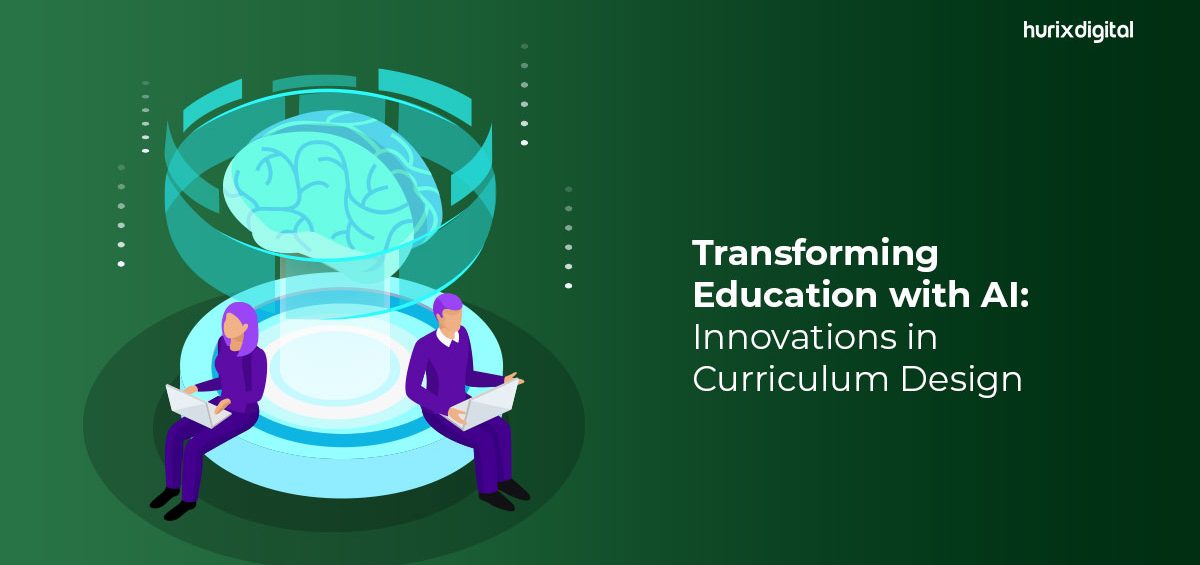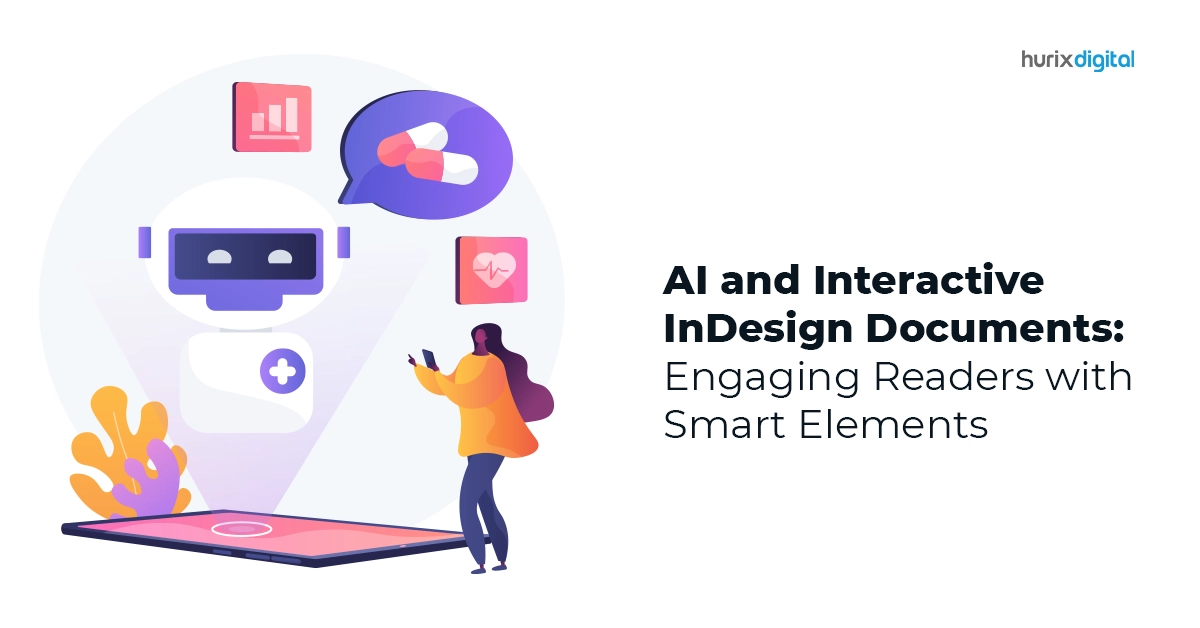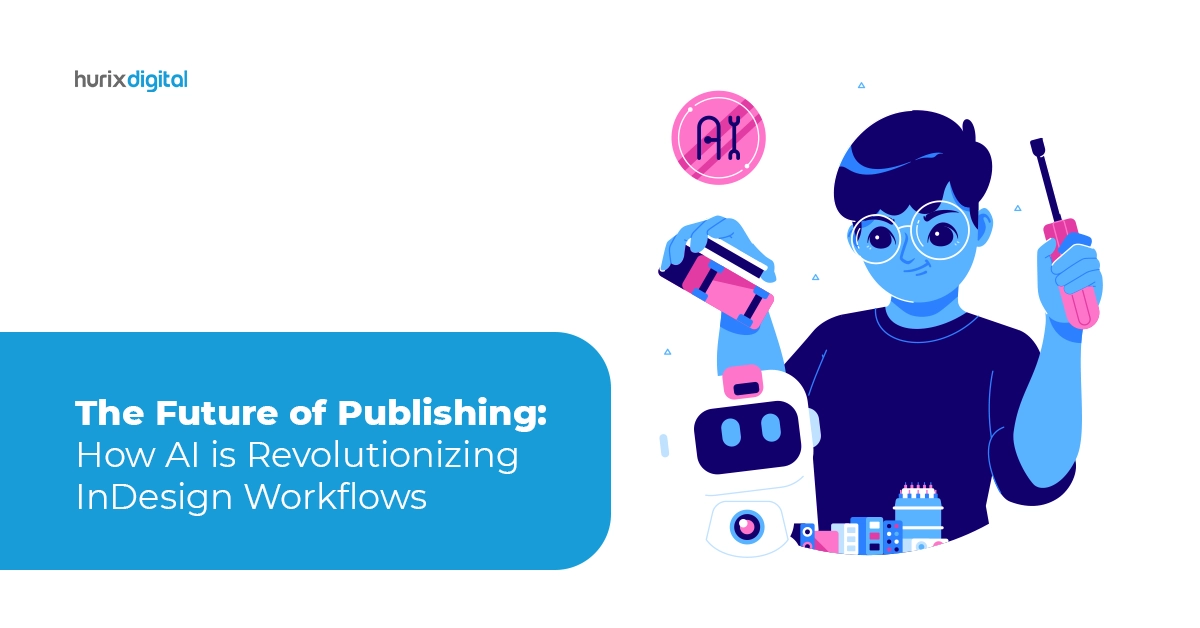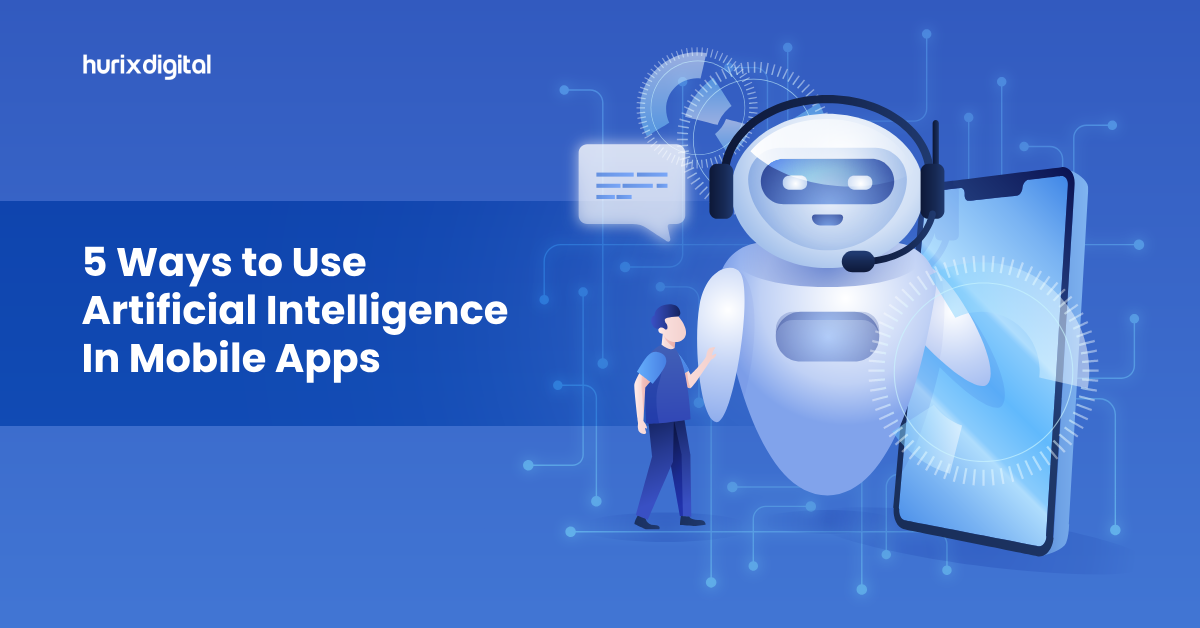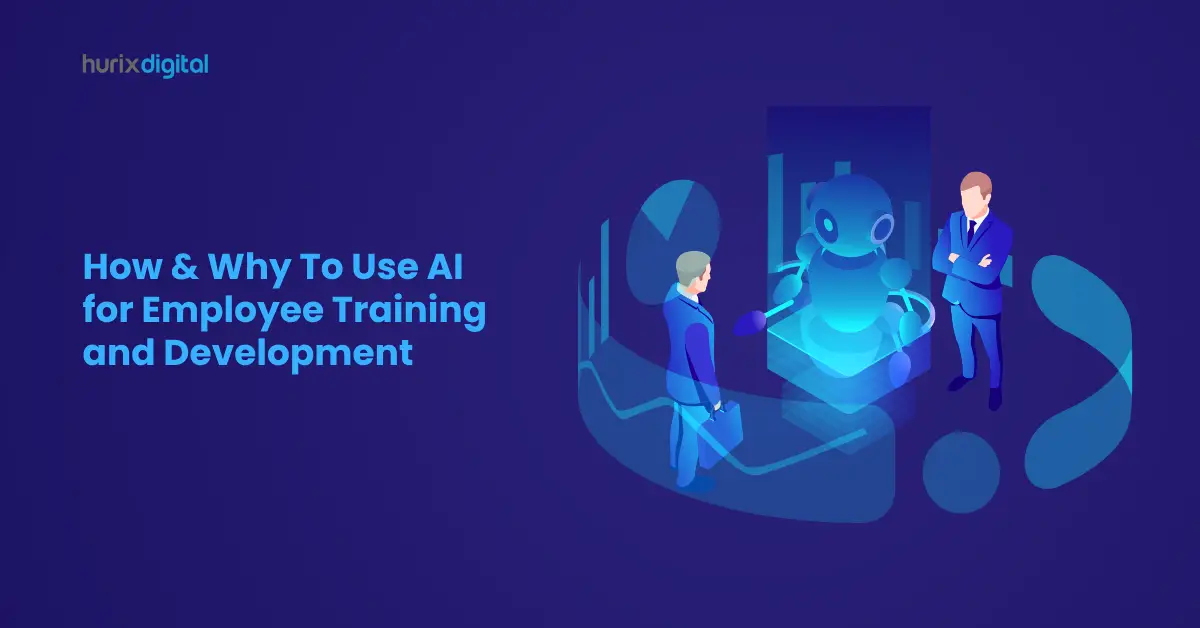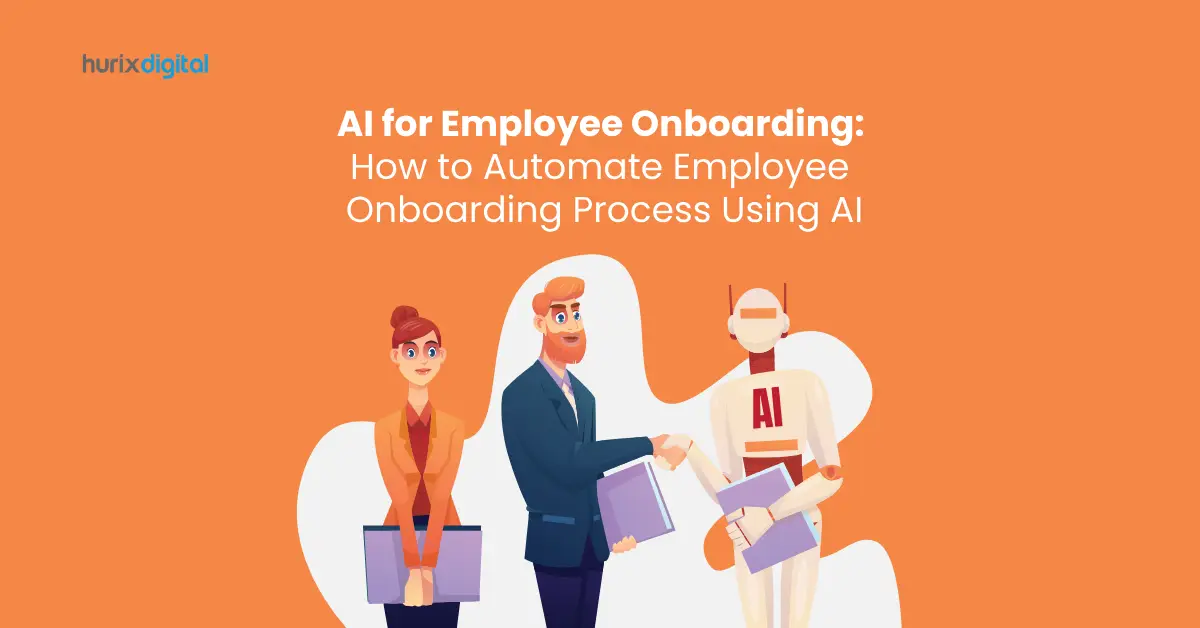With recent applications and use cases, AI-driven technology continues to generate an impact across all domains. Technology in education has witnessed a paradigm transition in recent years, with AI in curriculum becoming increasingly commonplace in grades k12 and above.
The merger of AI-driven tech trends in education has ushered in countless modifications in teaching and learning procedures, as instruction is no more confined to the traditional pen-and-paper methods. By leveraging AI in curriculum design, educational capabilities have multiplied by leaps and bounds. AI-enhanced LMSs bear the immense potential of accelerating the design and development of curriculum and taking education to a new form by making it personalized, efficient, and aligned with an organization’s learning requirements.
The eLearning market is projected to surpass 243 billion USD by the end of 2022, thanks to continuous advancements in AI-powered solutions. The deployment of AI tools such as Chatbots, NLP, Machine Learning, Data Analytics, and Deep Learning algorithms in education can monitor and report on learner progress. It can also tailor educational experiences to students’ unique requirements and preferences and boost evaluation.
The Markets and Markets analysis estimates that the global market for artificial intelligence in education will reach 3,683.5 million USD in 2023. From creating a virtual classroom environment and an automated grading system to predictive analytics, policymakers and educators are gearing AI tools to enhance learning outcomes and reinforce learning management systems.
Table of Contents:
- The Future of AI in Curriculum Design
1. Personalized Learning Paths
2. Intelligent Content Development
3. Automated Grading and Immediate Feedback
4. Predictive Analytics Promote Early Intervention
5. Intelligent Tutoring System - The Bottom Line
In this article, we delve into the future of AI in curriculum design and how it is rapidly becoming an indispensable tool in the educational sphere.

1. Personalized Learning Paths
Traditional learning is designed to offer a one-size-fits-all approach. On the contrary, AI-powered systems utilize machine learning algorithms to analyze vast amounts of data, including students’ learning preferences, weaknesses, and progress. This analysis helps tailor instruction to the learner’s requirements.
AI algorithms recommend appropriate resources, activities, and assessments through a data-driven strategy that continuously monitors a student’s performance. It uses predictive analysis to adapt the content according to an individual’s level of expertise.
Machine learning in education can detect if a student encounters difficulties with a new concept and offers additional resources while adapting the material to suit the difficulty level, facilitating their understanding of the concept. Conversely, if a student is advancing rapidly, AI can dynamically adjust the course pace to align with their learning speed and present more challenging tasks to keep them engaged.
Also Read: How to Create Personalized Learning Paths for Higher Education Students
AI in curriculum design creates robust learning solutions and customized journeys that mirror individual learner interests, preferences, and needs. AI learning modules reinforce concepts by filling in knowledge gaps while catering to distinct abilities to optimize their learning journey.
Educators may monitor and assess students’ progress in real-time and modify their pedagogical approaches to support individualized instruction tailored to each student.
2. Intelligent Content Development
Where students learn best through visual aids, relying solely on traditional text-based content may fail to achieve desired outcomes and engage learners. AI’s intelligent content creation goes beyond traditional teaching methods by providing dynamic 2D-3D visual aid and simulating real-life experiences through web-based study environments allowing students to perceive information in multiple ways.
It may be overwhelming for educators to identify the most relevant and engaging resources for their students with the vast amount of data at their disposal. With AI, course developers may leverage an extensive library integrated with stock assets and pre-made templates optimized for preferred learning modalities. Infusing AI capabilities such as automatic translation in curriculum development facilitates multilingual content creation with reduced time and greater accuracy.
As advancements in AI emerge, AI algorithms examine content from multiple sources, including textbooks, online material, and educational databases, to curate a diverse and comprehensive assortment of resources aligned with the curriculum.
AI-powered content curation enables educators to provide students with high-quality coursework that supports their learning objectives. It also ensures that the content remains relevant to the evolving needs of students and the changing educational landscape.
Also Read: 7 Ways to Use Interactive Videos in eLearning for K-12 Students
3. Automated Grading and Immediate Feedback
The grading of homework and assignments can be time-consuming and detract from valuable teaching and learning time otherwise dedicated to class preparation. Machine Learning merged with AI streamlines these processes, eradicating the need for manual grading and logging into multiple programs to review student work, track progress, and provide feedback.
AI technologies offer a more efficient and objective approach to assessment and feedback, enabling educators to allocate their time more effectively. Educators can focus on their core responsibilities, ultimately enhancing the teaching and learning experience.
AI-powered solutions assign value to the education system by centralizing and automating administrative tasks, such as grading assignments, monitoring attendance, and maintaining student records. The AI-integrated grading systems accurately evaluate exams, generating prompt results.
The transparency of the AI grading system reduces bias in grading and ensures consistent and fair evaluations and efficient outcomes, sparing no room for external manipulation. Educators may leverage the valuable insights offered by AI curriculum for schools to adapt the course accordingly for enhanced comprehension and retention.
4 . Predictive Analytics Promote Early Intervention
Distinguishing effective teaching from merely providing content lies in including continuous feedback. Analyzing reports based on everyday data is an integral aspect of this feedback process undertaken by AI.
Machine learning algorithms identify patterns and trends in student performance while generating predictive models that identify early warning indicators. AI-powered predictive analytics helps educators identify and address areas of strength and weakness at individual and class levels. This is achieved by examining various data points, such as attendance records, assessment results, and learning behaviors.
Real-time formative assessment tools can reduce dropout rates by detecting students at risk of falling behind or experiencing difficulties in specific subjects. The data-driven feedback and predictive model enables educators to intervene when required and undertake informed decisions about instructional strategies for providing targeted support where needed.
5. Intelligent Tutoring System
In a conventional setup, student assistance relies on a group of standard questions and answers. However, the AI curriculum for K12 utilizes intelligent digital technologies to provide an individualized and interactive learning experience by simulating one-on-one tutoring sessions.
Virtual tutoring and assistance use natural language processing, machine learning, and cognitive modeling to imitate human conversation to provide personalized guidance, feedback, and support. Learning Management Systems gain enhanced abilities to understand and address unconventional requests, analyze and respond to a conversational text with relevant data and extend open-format responses by integrating AI capabilities.
Chatbots are a well-known illustration of how AI in education leverages data to enhance knowledge and offer appropriate assistance. Conversational AI systems excel in delivering intelligent tutoring by closely observing patterns in content consumption and tailoring their approach to meet individual needs. AI-based digital tutors allow students to receive real-time explanations and guidance without engaging with human tutors.
An AI-based intelligent tutoring system leverages the student’s previous responses to determine the most relevant questions to ask. It includes targeting areas where the student has struggled by incorporating pertinent questions or progressing to a higher level when correct answers are consistently received.
Utilizing AI in curriculum design through ITS can offer additional practice exercises, explain concepts in various ways, and track progress in real-time for students who have trouble understanding algebraic equations, for instance. A personalized approach to tutoring consolidates understanding and helps students overcome challenges at their own pace.
The Bottom Line
AI has made significant strides in the educational sector, demonstrating a breakthrough in curriculum development. Integrating augmented reality and simulation tools produce customized recommendations and flexible learning routes for in-depth learning.
AI deployment services revolutionize learning while fetching higher accuracy and efficacy levels by eliminating redundancies and offering valuable insights for teachers.
At Hurix, we take pride in our AI-powered learning platform that goes above and beyond to provide enriching, immersive, and personalized learning experiences. Our online AI curriculum development platform offers a selection of diverse courses thoughtfully designed to cater to individual interests, accommodate unique schedules, and adapt to varying learning paces.
Also Read – Transforming Education with Smart Classrooms: The Role of AI


